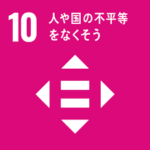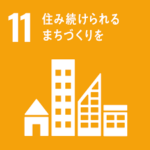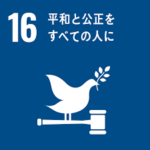Our Declaration towards SDGs.
Fukushima-City Children’s Cafeteria Network
“Children’s cafeterias” – providing free/low-priced meal to local children, has increased all over Japan in recent years, and its number reached to 4,000 facilities across Japan.
The role and functions that is required to “children’s cafeteria” became diversified, and each “children’s cafeteria” has its own uniqueness.
Fukushima-City Children’s Cafeteria Network is the newly established network that gathered children’s cafeteria located in Fukushima city.
At the Fukushima-City Children’s Cafeteria Network, we share each of our concerns and issues that occur at the individual children’s cafeteria, and strengthen the horizontal connections. By doing so, we can contribute to the community in more sustainable way.
Nowadays, the challenges surrounding children are becoming more complex.
As the times change, information overflows and life becomes more convenient, but at the same time, the society hides issues and anxiety that children have.
Most of the support for children comes after they are in poverty or after being abused.
Supporting after the problem occurs is too late in many cases. We need an environment where we can support the children before problem occurs.
We have been working on creating a place to suppoort children in the area.
The Children’s Cafeteria creates vertical, horizontal, and diagonal connections through delivering food.
Adults, seniors, and students all think for children and seek out what they can do, and then, each of them takes small actions, such as preparing meals, helping study, and playing together.
One person’s man-power is limited, but the small support of each person in the area is very effective.
The Children’s Cafeteria is a place for empathy and approval, where not only children but also each person can express themselves with peace of mind.
In addition, it will be a place for self-realization in which all the people involved, including the operator and participants, can grasp happiness by developing community that all participants participates through the activity for children.
The Children’s Cafeteria, where the children who will carry the future gather, is a treasure trove of possibilities.
In 2030, Fukushima City will also face the ultra-low birthrate and aging society.
Since we live in an era where no one can predict, I think it is necessary to have a cycle of pay-it-forward that transcends generations. The cycle is created by a little warm feeling toward children.
Our goal is to create a world where everyone can become a hero by just being themselves without making themselves look good.
To achieve this, we will develop many Children’s Cafeterias in the city in a unique way.
We allow not only children but also those involved in the cafeteria can choose a place that suits them.
It is our mission to create such a vibrant future from the small good intentions of each and every one of us.
These efforts are in line with the SDGs philosophy of leaving no one behind, and lead to the promotion of SDGs action No. 10, 11, and 16.
Therefore, we will declare the SDGs here, meet the expectations of society at large, and actively and constantly take actions.
December 9, 2020
Fukushima-City Children’s Cafeteria Network
Declaration of Action
We will practice the followings in order to achieve the philosophy of Fukushima-City Children’s Cafeteria Network.
Action Plan
2020 institutionalization of Fukushima-City Children’s Cafeteria Network
(Completed in June, 2020)
2021 Introduction of advisor certification system for children’s cafeteria in the city
2022 Promotion of public / private / academic entry in the Fukushima-City Children’s Cafeteria Network.Also, construction of volunteer network
2023 Achievement of operating 30 children’s cafeterias in the city
2024 Strengthens acceptance of inspections from other regions by Fukushima-City Children’s Cafeteria Network being an advanced case for community development
2025 Achievement of operating 50 children’s cafeterias in the city (1st place in the sufficiency rate in each municipality)
➡Achievement of SDGs No.11″
2026 Promotion of policy proposal for regional revitalization and children through the Fukushima-City Children’s Cafeteria Network
2027 Introducing the performance of Fukushima-City Children’s Cafeteria Network to the world, and share its know-how
2028 Establishment of “Model of Fukushima” for regional revitalization centerlized on children’s cafeteria
2029 Realization of a world full of children’s dreams by eliminating child abuse and suicides
➡ Achievement of SDGs No.16″
2030 Realization of a world where everyone can become a hero by doing what they can do, and everyone has a chance to do so.
➡ Achievement of SDGs No.10″
Enacted December 20, 2020
Fukushima-City Children’s Cafeteria Network




